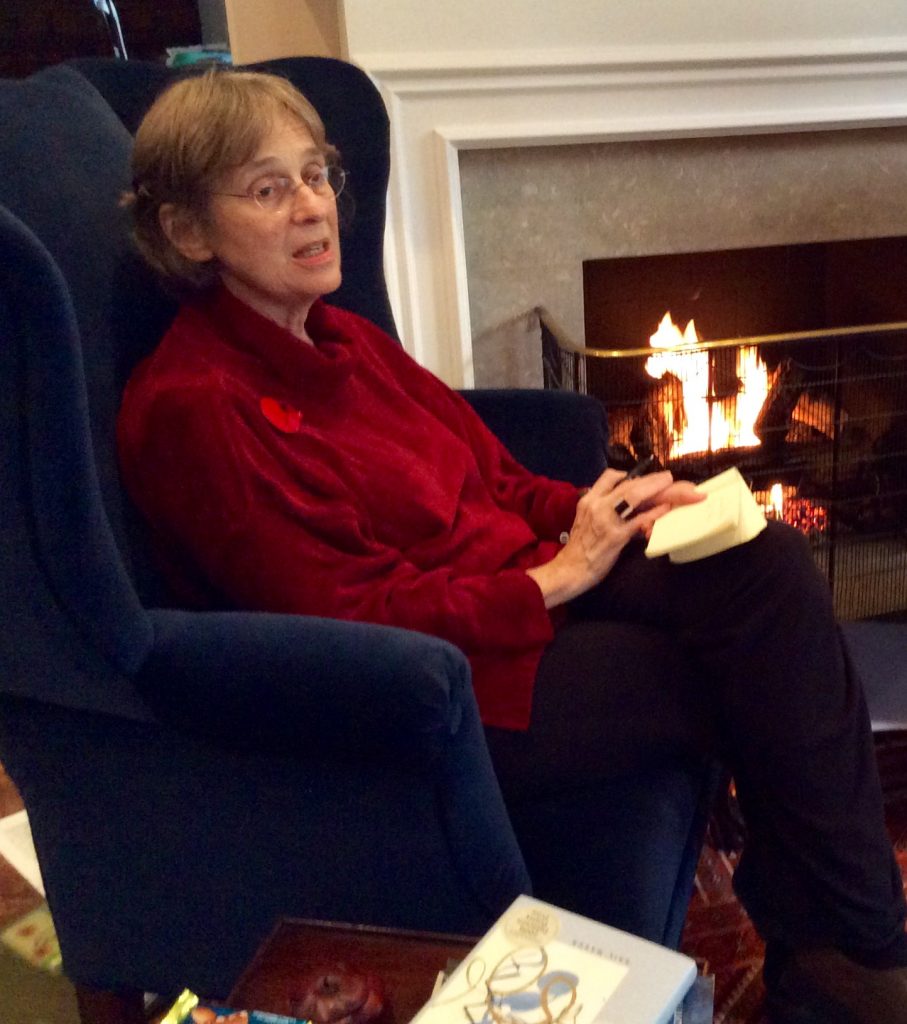Gail Mazur. Cambridge Massachusetts, 1937. Poeta y Asesor editorial. Publicó su primer poemario: Nightfire, en 1978 a los 40 años. Tiene otros cinco libros de poesía publicados. Zeppo primera esposa, mereció el Premio del Libro de Massachusetts. En 2011 publica: Figuras en un paisaje. Obtuvo el Premio Paterson de Poesía. Reconoce a Robert Lowell como su maestro.

LA ERA Durante un tiempo que parecía infinito hubo noches demasiado largas. Nosotros conocíamos un poco de ciencia, no lo suficiente, algo de cosmología. Habíamos escuchado sobre la materia oscura, nos habían asegurado que aunque estaba en todas partes, no colisionaría, nunca llegaría a estrellarse con nuestro planeta, pues se rige por una ley más amable que la gravedad, sus partículas se mueven unas a través de las otras. Comenzamos a entender que no debíamos temer por pertenecer a los desechos del universo, o porque cuando miramos las estrellas, realmente miramos hacia atrás. Era difícil que nos gustara lo que sabíamos. Queríamos vivir en el presente, pero era oscuro. La ignorancia fue nuestro único consuelo. El universo estaba en expansión a un ritmo acelerado, nos habían dicho que no estábamos en su centro, que no tenía ningún centro. ¿Y cómo mirar hacia adelante con esperanza, sin mirar hacia arriba? Les dije a los demás que deberíamos estudiar la historia de nuevo, la historia nos enseña más que borrones, más que disminuciones, debía haber algo para nosotros allí. También me atreví a decir que podríamos empezar a trabajar en las cosas de nuevo, para hacerlas, pensaba que las horas de luz se extenderían, que la naturaleza todavía funcionaba de esa manera. Nosotros tendríamos un futuro. Hasta entonces habíamos estado observando sólo los aniversarios de errores y catástrofes, la oscuridad parecía una manta, que contenía nuestra terrible vergüenza. No sé si alguien me escuchó, no importa. Gradualmente, las tardes comenzaron a escurrirse hacia atrás. Como lo había prometido, los niños podían caminar a casa desde la escuela en la frescura de la luz, parecían más juguetones, cantando canciones sin sentido, así que los maravillosos pájaros grises querían imitarlos. ¿Por qué decir algo, por qué decirles que las noches sin fin volverían? Escúchalos, nombran un nuevo líder en el que sus labios confían, O O O cantan, y escucho un apretón para despertar de un penoso sueño.
THE AGE Traducción: Francia Rosa Calzadilla For what seemed an infinite time there were nights that were too long. We knew a little science, not enough, some cosmology. We'd heard of dark matter, we'd been assured although it's everywhere, it doesn't collide, it will never slam into our planet, it somehow obeys a gentler law of gravity, its particles move through each other. We'd begun to understand it shouldn't frighten us that we were the universe's debris, or that when we look up at the stars, we're really looking back. It was hard to like what we knew. We wanted to live in the present, but it was dark. Ignorance was one of our consolations. The universe was expanding at an accelerating rate, we'd been told we were not at its center, that it had no center. And how look forward with hope, if not by looking up? I told the others we ought to study history again, history teaches us more than erasures, more than diminutions, there'd be something for us there. I also dared to say we could begin to work at things again, to make things, that I thought the hours of light would lengthen, that nature still works that way. We would have a future. Up to then we'd been observing anniversaries only of mistakes and catastrophes, the darkness seemed to blanket, to contain our terrible shame. I don't know if anyone listened to me, it doesn't matter. Gradually, afternoons began seeping back. As I'd promised, the children could walk home from school in the freshening light, they seemed more playful, singing nonsensical songs so marvelous catbirds wanted to mimic them. Why say anything, why tell them the endless nights would return? Listen to them, the name of a new leader they trust on their lips, O O O they chant, and I hear like one struggling to wake from a mournful dream.


